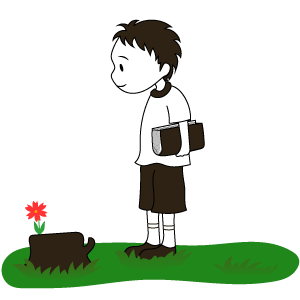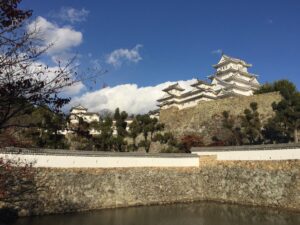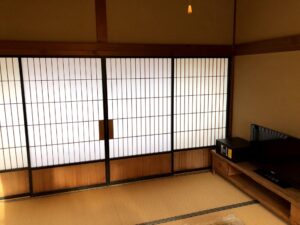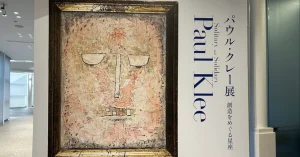I want “earnest words” more than anything else
When I hear the word “livelihood”, I think it sounds a little more elegant than the word “life” which means the same thing.
Originally, the magazine in this NOTE, “A Little Thought” was titled “Literature of Living”. It was taken from Akiko Ikeda’s last book, “Philosophy of Living,” which I admire.
All of the works of Ms. Ikeda, a philosopher who pioneered the field of “philosophical essays,” were sharp-tongued and full of enthusiastic and challenging words, with the intention of changing the world through philosophy.
I loved her brilliant works in her early days, such as “The Theory of Cruel Life” and “Invincible Socrates” (which I personally think deserves the Naoki Prize), but recently I often reread her works from her last years.
Her writings are full of introspective calmness as she tries to sum up her life in the face of cancer, rather than the brilliant writings of her youth.
She writes about the significance of philosophizing in the course of one’s ordinary life, about the death of her dog, about driving, and about other things she has thought about while being exposed to philosophy from time to time. These documents are truly philosophy in daily life.
Some people who read this may be disappointed, thinking that Mr. Ikeda has become rounded, aged, and mature. But at the same time, there are those who may think that he has gone from being a person from another world with a slightly different dimension to being a little more human.
Above all, I was very impressed by the fact that what was mostly a list of philosophical words became much easier to understand by passing through “living,” the everyday life that people normally live.
I consider Mr. Ikeda to be my first philosophy teacher (although I am sure the late Mr. Ikeda would say that you should first become your own teacher rather than calling yourself a teacher), whereas my literature teacher is Soseki Natsume.
I believe that Soseki Natsume, a great writer, was a man who tried to express literature in his “lifestyle” in many of his works.
He loved rakugo, and his early works such as “I am a Cat” and “Bo-chan” show the influence of rakugo in the way he narrated his stories. If you pole the pole with your feelings, you will be swept away. If you let your willpower get the better of you, you will be swept away. When you realize that it is difficult to live in this world…no matter where you move, it is difficult to live, then poetry is born and painting is created.
By the way, what is the difference between philosophy and literature? It is difficult to put it in one word, but I think that philosophy is an attitude of trying to clarify the truth using logic as a weapon (knowing that we do not know what we do not know), and literature is an attempt to convey what we have thought and understood in the process by compiling it into a story that anyone can understand.
Of course, philosophy does not exist for the sake of literature, and vice versa. Literature can exist without philosophy, and philosophy can exist without literature.
Just as the writings of the great philosopher Plato naturally became poetry and stories, it is quite possible for a philosopher to use a story as a means of making himself understood by many people.
I think that French writers Camus and Sartre are somewhat more philosophers than pure literature writers.
I feel that Ikeda-san’s essays, which started out as philosophical essays, gradually became more literary in nature, as if he were telling a more accessible story. I think the manifestation of this is “Philosophy of Living,” which he wrote in his later years.
He tried to somehow link the word “living” and “philosophy,” which at first glance seem to be opposite activities. Rather, I tried to find this attitude in living.
As long as we are all alive, we live every day.
Everyone has his or her own philosophy, however small or large. And the older we get, the more earnest philosophy becomes necessary in the face of death. This thought must be the reason for the title of the book, Philosophy of Living.
However, due to illness, Mr. Ikeda’s attempt to do so came to an end halfway through.
As for myself, I had neither the power nor the ability to carry on Mr. Ikeda’s philosophy of living, so I decided to try my hand at living literature with the help of Soseki Natsume, who believed equally in the “power of storytelling.
When people reach the turning point of their lives (not in terms of actual years, but as a feeling), what do they need? Is it family, work, or fulfillment?
For me, I think I would still like to have some earnest “words”. I believe that the words we need will be more necessary than life-prolonging treatment technology or STAP cells in our long-lived society, which is said to be the age of 100 years.
What is needed in an aging society. It is an earnest word that supports life, and a view of life and death. What is more, I think it is an irreplaceable story that links all of these elements together, so that people can live until their death.
From now on, rather than living longer, we will live longer as a result. With that in mind, it is clear that this will be more important than money, things, and pleasures.
Dying is, after all, just another phenomenon in life. In the words of Kenji Miyazawa, it is “one of the flickering lights of a street lamp in the darkness.
When a person dies, what kind of story can he or she carry with them? To put it in the extreme, what words can he or she carry with him or her when he or she dies? I hope to find out how to have such words in my own life, while writing novels and sometimes poetry (haiku and tanka). Ikeda-san was also trying to write a novel (a philosophical myth) someday.
A magical story that no matter how long you live, you will suddenly feel at ease when you read it. If I could write even one such story, I would be a novelist at heart.
See you soon.












